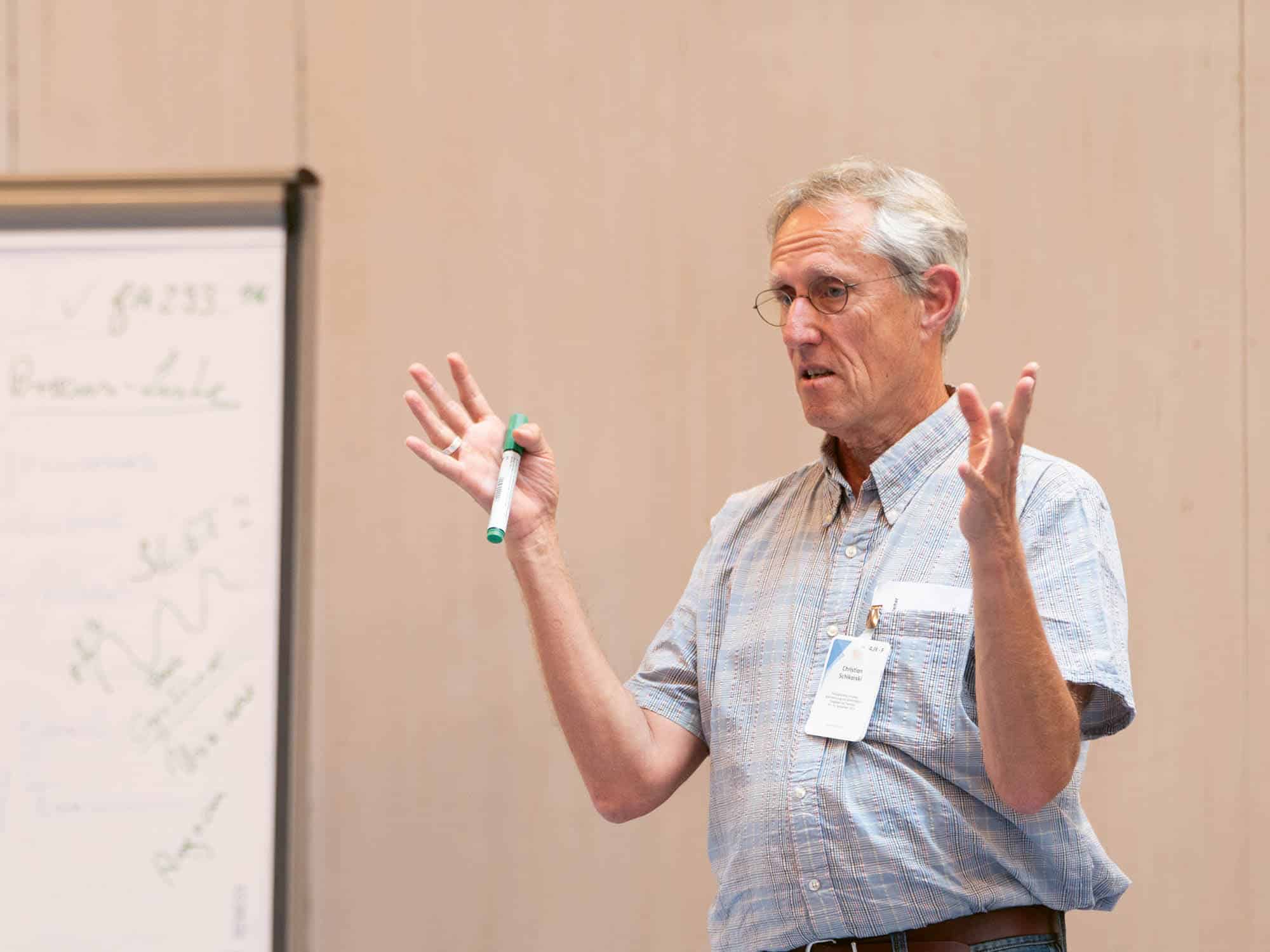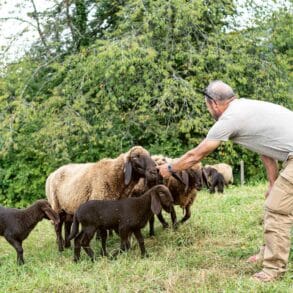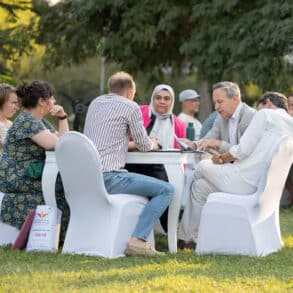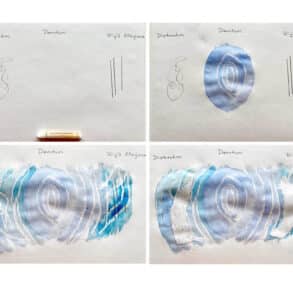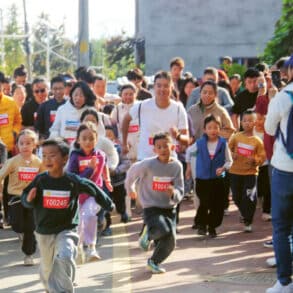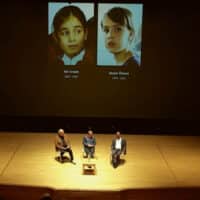Christian Schikarski introduced the Medical Section’s new area of care at the 2024 Annual Medical Conference last September. Julia Demming spoke to him about its tasks and opportunities.
Julia Demming: Where do you live? Where do you work? And what’s your role in the new area of care, “Elderly Culture and Geriatric Medicine”?
Christian Schikarski: I’ve been a doctor for forty years, most recently at the retirement home in Hombrechtikon, Switzerland, where I had a lot of experience with geriatrics and dementia care. Previously, I worked at the Paracelsus Hospital in Richterswil, Switzerland, and spent twenty years in Witten/Herdecke, Germany, at the hospital and at the university, and in between at the geriatric rehabilitation center in Bad Steben, Germany. Since October 2023, I’ve been retired and have time to take on the responsibility for the new job. That’s why Karin Michael [Co-Director of the Medical Section] asked me to do it.
Are you the director of the group working in this new area?
I’m surrounded by experts who may have a better understanding of certain situations than I do, so I moderate the process, making sure things flow together well. I also prepare everything so we get something down on paper for publication.
There are six areas of care that the Medical Section has chosen as focal points: “Pregnancy, birth, and early childhood,” “Dealing with fever and infectious diseases,” “Common forms of anxiety and depression,” “Oncology,” “Palliative care,” and now, “Elderly culture.”
That’s right. We want to think about what aging means. Is it a disease, or is it something that occurs naturally? If so, then what actually is illness? What kinds of things are difficult to manage, and how can these things be more sensibly integrated into our society so that our common humanity is not lost amongst technical equipment and procedures?
In these areas of care, you work together across professions and try to develop concepts to support training and teaching in order to help shape the discourse on societal challenges. When will you be able to offer your first results to the public? What’s your current status?
By the beginning of next year, we might already be able to come out with something. We had our first online meeting in early summer and our first in-person meeting at the September conference in Dornach. This has now helped almost everyone involved to know where they can begin their work. Everyone is now going back to their desks, and we have an appointment for the next online conference in November. We hope to be able to sift through some of the ideas, deepen the discussion, and see how we can come to an agreement. The interdisciplinary approach is incredibly enriching. Aging is not primarily a medical problem, but actually, it is, first and foremost, a nursing problem, a human problem, and a problem of integration. That’s why so many different skills are needed in order to speak across a wide spectrum so that all future readers can benefit from our findings.
What professional groups or fields of specialization are represented in this area of care working group?
Our focus is really on nursing care. We have a number of geriatric specialists who also have experience working in geriatric clinics. We have a number of therapists who use art therapy, physiotherapy, and craniosacral therapy in different ways with the elderly or patients with dementia and have thereby gained experience that can be clearly formulated for other practitioners.
Elderly culture is an important theme in itself with regard to human dignity. Why do you think that anthroposophic medicine, in particular, needs to provide further impetus in this area? Does it have the expertise to help shape this area?
This has to do with the picture of the human being in anthroposophical medicine. What is a human being if their memory no longer functions properly? Can I share trust and confidence in a person whose memory functions poorly simply because I know they’re a human being? And how can I support their humanity? This requires a spiritual background. If I understand human beings only as biochemical machines, then I can’t discover what is needed here. We no longer live in a time when the attention to human dignity was held up by common church beliefs or some kind of piety. Now, in order to accomplish this with real quality, it must have a foundation in science, and in this case, spiritual science.
The title of the September conference was Therapeutic Intuition: Perception and Reality in Diagnosis and Therapy. What do therapy and intuition have to do with each other?
A lot! I need to have a mental picture of what it is to be a human being, and I have to train myself to continually develop this. When I see a patient perform a certain activity, am I able to have a specific idea of what this patient needs, even if I’m unable to explain it to myself at length? Can I ask the right question at the right moment based on the fact that I see something that I wouldn’t find if I only worked through some kind of checklist? We continuously need intuition, especially in our everyday, on-the-job experience.
How have you experienced this in your own day-to-day work? What have you done to develop this intuition? Or was it simply given to you at some point by way of experience?
It does actually develop through work experience. I still come from a generation where “learning by doing” was the common practice. But now, we’re taking the step of systematizing this process and thereby understanding more clearly what we’re doing, even with regard to intuition. We’re really only now beginning to enter the phase where we can take up certain practices and develop skills that facilitate the development of intuition more consciously.
What does aging and elderly culture mean to you personally?
Well, of course, it does affect me personally! I’m 73 now, and I’m still one of those people who walk around everywhere looking for things to do. But, I am noticing that something is changing in my consciousness. My view of the world is changing, and that will be the first topic I’ll be writing about how someone who is getting old thinks and feels. I’m curious to see what I will be able to put into words. But, I’m focusing on a quote by Rudolf Steiner from the course for Waldorf teachers, where, actually, he talks about children. He contrasts children with older people and says that the child is characterized by a willing-feeling. They feel something and then immediately begin to make some kind of movement, fidgeting, kicking, etc. Older people begin to feel when they think. So, when the older person develops their thoughts about the world, these become more and more connected with their feeling life. A kind of healing can occur. I’m following this trail at the moment.
So, you’re optimistic about your own future and that of aging human beings?
Yes, even if everything looks difficult. And I’m also excited.
Translation Joshua Kelberman

